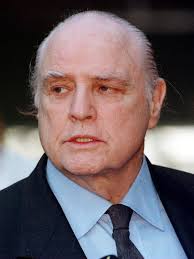Marlon Brando: The Iconic Legacy of a Hollywood Legend
Marlon Brando: The Iconic Legacy of a Hollywood Legend

Marlon Brando, an actor whose name is synonymous with the art of acting, remains one of the most influential figures in the history of cinema. His career, marked by both groundbreaking performances and personal controversies, has left an indelible mark on Hollywood and beyond. This article delves into the life, career, and enduring legacy of Marlon Brando, exploring his significant contributions to film, his complex personal life, and his lasting impact on the world of acting.
Early Life and Career Beginnings
1. Background and Early Years
Marlon Brando was born on April 3, 1924, in Omaha, Nebraska, to a family with a somewhat tumultuous background. His father, Marlon Brando Sr., was a salesman, and his mother, Dorothy Brando, was an aspiring actress. Brando’s early years were marked by instability, including his parents’ separation and his troubled relationships with them. Despite these challenges, Brando’s passion for acting was evident from a young age.
2. Acting Training
Brando’s pursuit of acting took him to New York City, where he studied at the Dramatic Workshop of the New School under the guidance of renowned teacher Stella Adler. This training was crucial in shaping his craft and developing his distinctive style. It was during this period that Brando honed his method acting techniques, drawing inspiration from the teachings of Konstantin Stanislavski and Lee Strasberg.
3. Early Stage Success
Before making a significant impact on the big screen, Brando achieved considerable success on stage. His Broadway debut came in 1944 with the play “I Remember Mama”, but it was his role in “A Streetcar Named Desire” (1947) that truly launched his career. Brando’s portrayal of Stanley Kowalski in the play earned him critical acclaim and set the stage for his future in film.
Rise to Stardom
1. Breakthrough Films
Marlon Brando’s film debut came with “The Men” (1950), where he played a disabled war veteran. However, it was his performance in “The Godfather” (1972) that solidified his place in cinematic history. As Vito Corleone, Brando delivered a performance that became iconic, showcasing his unparalleled ability to inhabit complex characters. His portrayal earned him the Academy Award for Best Actor, although he famously declined the Oscar in protest of Hollywood’s treatment of Native Americans.
2. Iconic Performances
Brando’s career is replete with memorable roles that exemplify his range and depth as an actor:
- “On the Waterfront” (1954): Brando’s portrayal of Terry Malloy, a longshoreman challenging corruption, is considered one of the greatest performances in film history. His role earned him a second Academy Award for Best Actor and highlighted his method acting skills.
- “The Wild One” (1953): In this film, Brando played Johnny Strabler, a rebellious biker, which further cemented his status as a cultural icon. The role’s portrayal of anti-establishment sentiments resonated deeply with audiences and critics alike.
- “Apocalypse Now” (1979): Brando’s portrayal of Colonel Kurtz, a rogue military officer, showcased his ability to bring intense psychological complexity to his characters. Although his scenes were filmed under challenging conditions, his performance is widely regarded as a masterclass in acting.
Personal Life and Controversies
1. Relationships and Family
Brando’s personal life was marked by numerous relationships and family dynamics that often drew media attention. He married actress Anna Kashfi in 1957, and they had a son, Christian Brando. The marriage ended in divorce in 1959. Brando later married Movita Castaneda, with whom he had two children, but this marriage also ended in divorce. His personal life was often tumultuous, characterized by complex relationships and family challenges.
2. Activism and Political Stance
Brando was known for his strong political views and activism. He was a vocal advocate for Native American rights and social justice causes. His refusal to accept the Academy Award for Best Actor in 1973 was a protest against Hollywood’s portrayal of Native Americans and the treatment of indigenous peoples. Brando’s activism extended to his support for various civil rights movements, reflecting his commitment to social change.
3. Legal Issues and Controversies
Brando’s later years were marred by legal and personal issues, including legal disputes involving his children and financial difficulties. His erratic behavior and controversies often overshadowed his professional achievements. Despite these challenges, his contributions to film remained significant.
Legacy and Influence
1. Impact on Acting
Marlon Brando’s influence on acting is profound and far-reaching. He revolutionized the craft with his method acting approach, emphasizing emotional authenticity and psychological depth. His techniques inspired countless actors and continue to be a cornerstone of acting training. Brando’s emphasis on naturalistic performance and character immersion reshaped the expectations of actors and directors alike.
2. Cultural Icon
Brando’s impact extends beyond film into popular culture. His roles in movies like “The Godfather” and “On the Waterfront” have become touchstones of cinematic excellence. Brando’s distinctive style, including his use of improvisation and emotional vulnerability, has left a lasting imprint on the portrayal of complex characters in film.
3. Enduring Influence
Even decades after his peak, Marlon Brando’s work remains influential. New generations of actors and filmmakers study his performances to understand the art of acting and the power of storytelling. His legacy continues to be celebrated through retrospectives, academic studies, and tributes in popular media.
Conclusion
Marlon Brando’s career and legacy are a testament to his extraordinary talent and profound impact on the world of cinema. From his groundbreaking performances to his activism and personal struggles, Brando’s life was marked by both brilliance and complexity. His contributions to acting have set a high standard for performance and have inspired countless artists. As a cultural icon and cinematic legend, Marlon Brando’s influence endures, ensuring that his legacy will continue to resonate in the world of film for generations to come.

